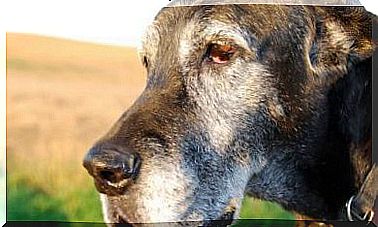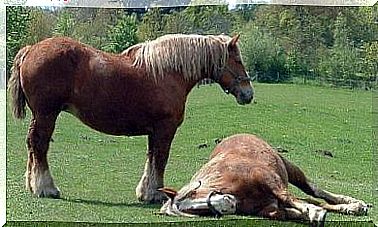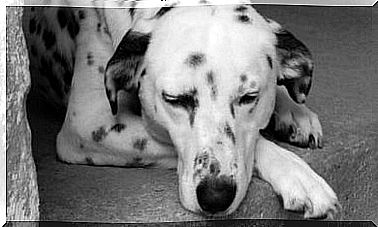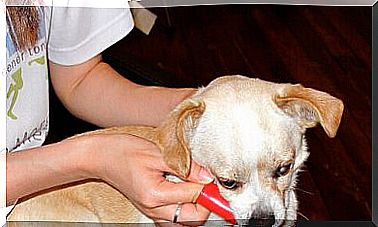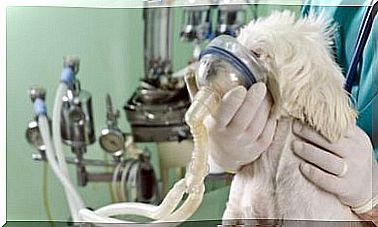Five Reasons Dogs Urinate Indoors
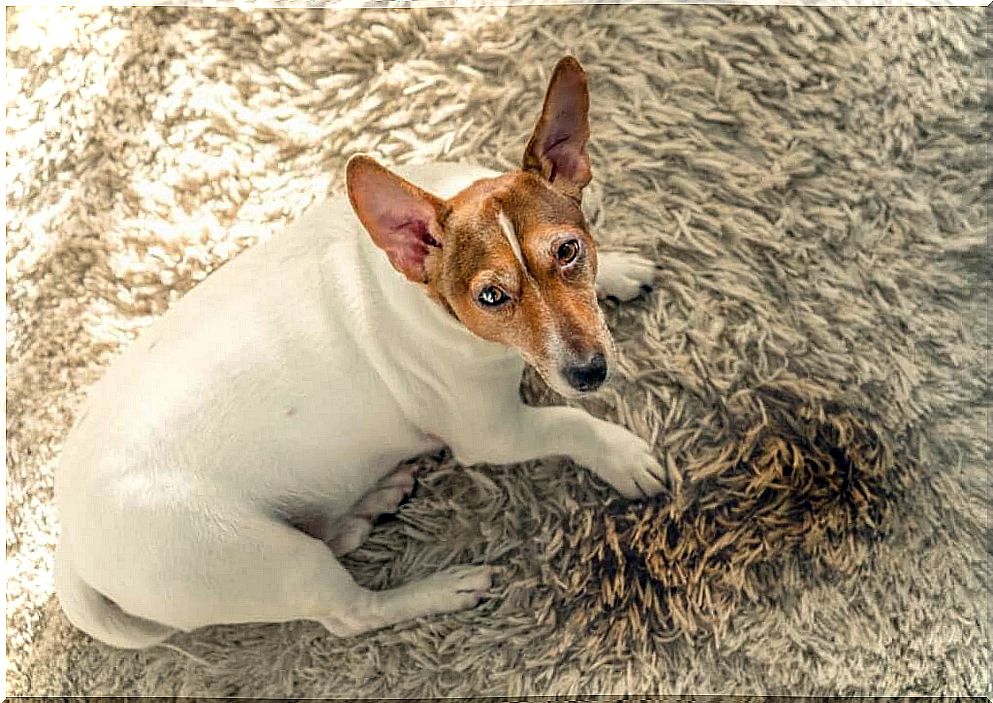
That dogs aren’t stuffed animals is something animal lovers more than ever understand. As living beings, they eat, cry, sometimes misbehave and need to relieve themselves. Normally, their private bathroom is on the street or in the garden, where they tend to do their needs. However, there are a few reasons why dogs urinate indoors.
Do you know the reasons that can make the dog urinate in the house? Did you know that there are some illnesses that can lead to this unwanted behavior? Read on to find out what the most common reasons behind this behavior are.
Why do dogs urinate indoors?
The root of this behavior is based on three principles:
- Lack of education: When the dog is not sure about the right place to relieve himself, he may urinate indoors because he understands it is the right thing to do.
- Behavior problems: similar to the previous situation, but in this case it can be said that the animal understands that the interior of the house is not the place to relieve itself. However, anxiety disorders or fears can cause pee leakage.
- Health problems: any organic disorder that causes difficulty in retaining urine or an increase in its production and the consequent increase in the need to urinate.
Following these premises, we will explain the main reasons for this undesirable behavior in the following lines.
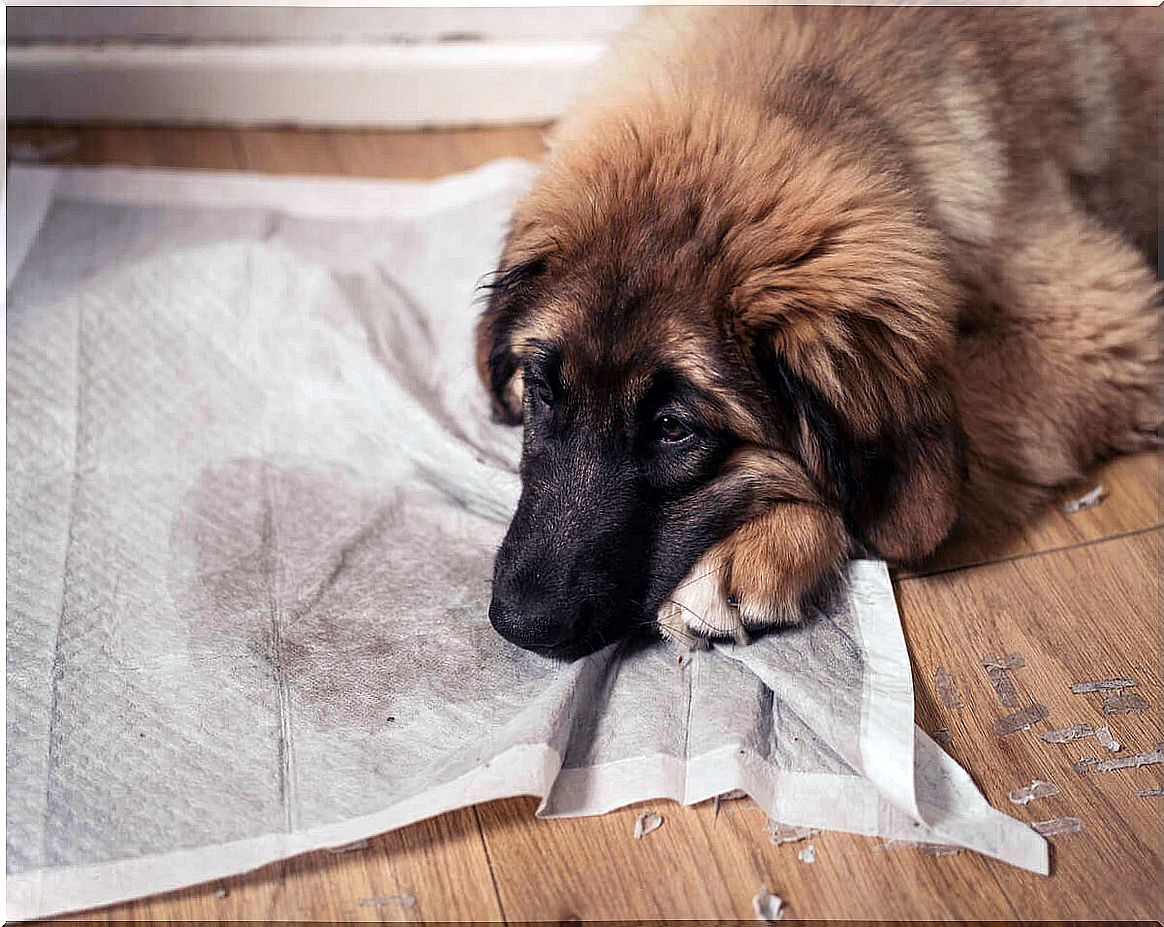
Puppies: young animals or animals not used to urinating in the street
In these cases, dogs do not know where they should go, so they urinate and also defecate indoors. In puppies and young animals, it is a normal problem that resolves over time.
In older dogs that, due to particular circumstances, were never taught, this type of behavior may also exist. It is usually an easily resolved disorder, although it requires a little more training and effort on the part of the owners to be able to re-educate the animal.
behavior problems
There are several such disorders that can cause this behavior to appear. For example:
- Anxiety problems, such as that produced by separation.
- Fears or phobias, for example of loud noises.
- Emotion, when the animal is happy to receive a visit.
- Territory demarcation.
To solve the problem, it is convenient to correctly assess the animal’s psychological state and propose an appropriate behavior modification treatment.
Pharmacological treatments
Taking certain medications can increase urine production or water intake and cause an increased need to urinate. Therefore, the dog may be unable to retain urine until the next walk and end up relieving itself at home.
Some of the drugs that can develop this condition are as follows:
- Diuretics: of course, their function is to produce more urine, so it is common for dogs undergoing treatments with this type of medication to urinate at home.
- Corticosteroids: can cause increased water intake, which leads to increased urine output.
urinary diseases
There are many urinary system conditions that can produce a situation where the dog urinates at home. Any disturbance in this system, which is primarily responsible for regulating urine production, can modify its production.
In this sense, some of the most common diseases are as follows:
- Kidney failure: Animals with kidney problems may be unable to maintain urine retention, so these dogs often urinate at home.
- Urinary Infection: A urinary tract infection produces, as it happens with people, a painful sensation when urinating. Faced with this pain, dogs do not empty their bladders correctly during walks, needing to urinate at home afterwards.
hormonal diseases
In addition to the urinary system, the endocrine system is also actively involved in regulating the amount of urine produced. Therefore, endocrine disorders may also be behind this behavior. Some of the most common in dogs are as follows:
- Diabetes.
- Cushing’s syndrome , characterized by the excessive appearance of the hormone cortisol.
- Hypothyroidism, thyroid gland malfunction.
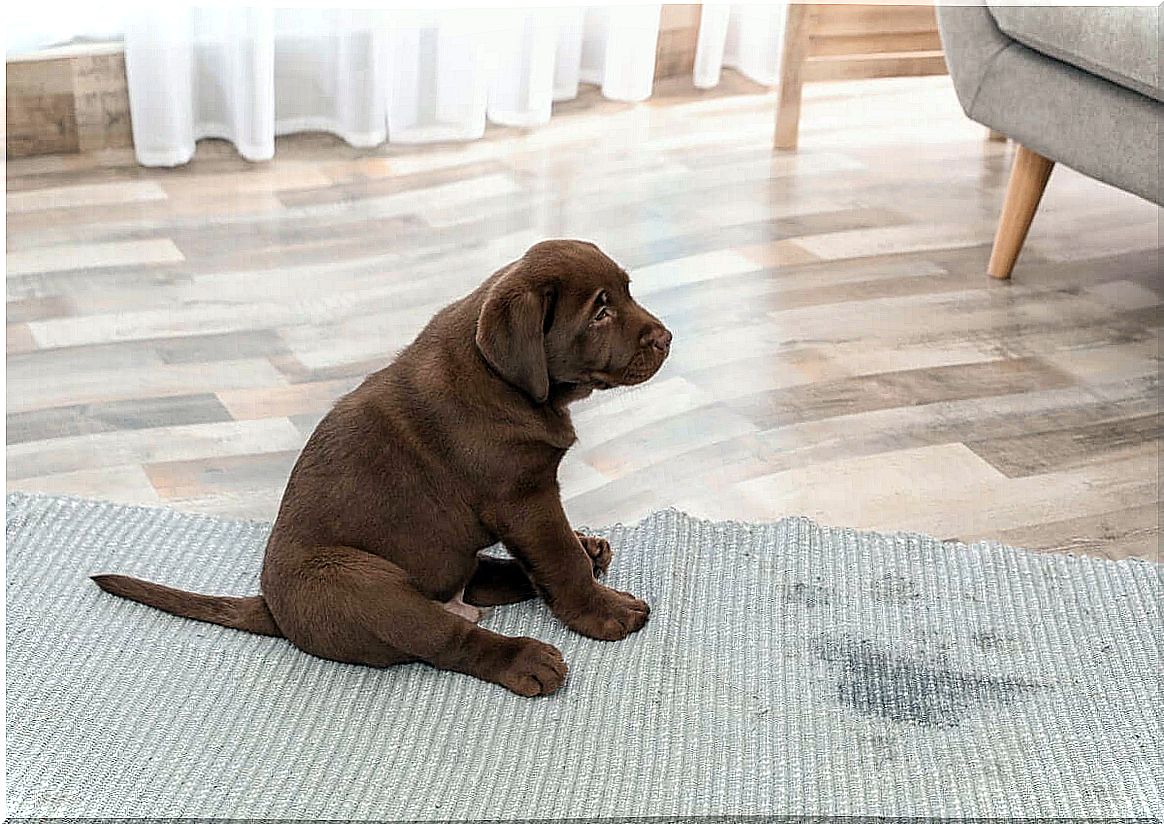
In conclusion, given the variety and number of reasons behind the behavior treated, we recommend going to the veterinarian to correctly assess the causes that lead your dog to urinate indoors.
Rather than seeing that pee on the rug as a reason to get angry, we should interpret it as an indication that the dog’s health may be at risk.
